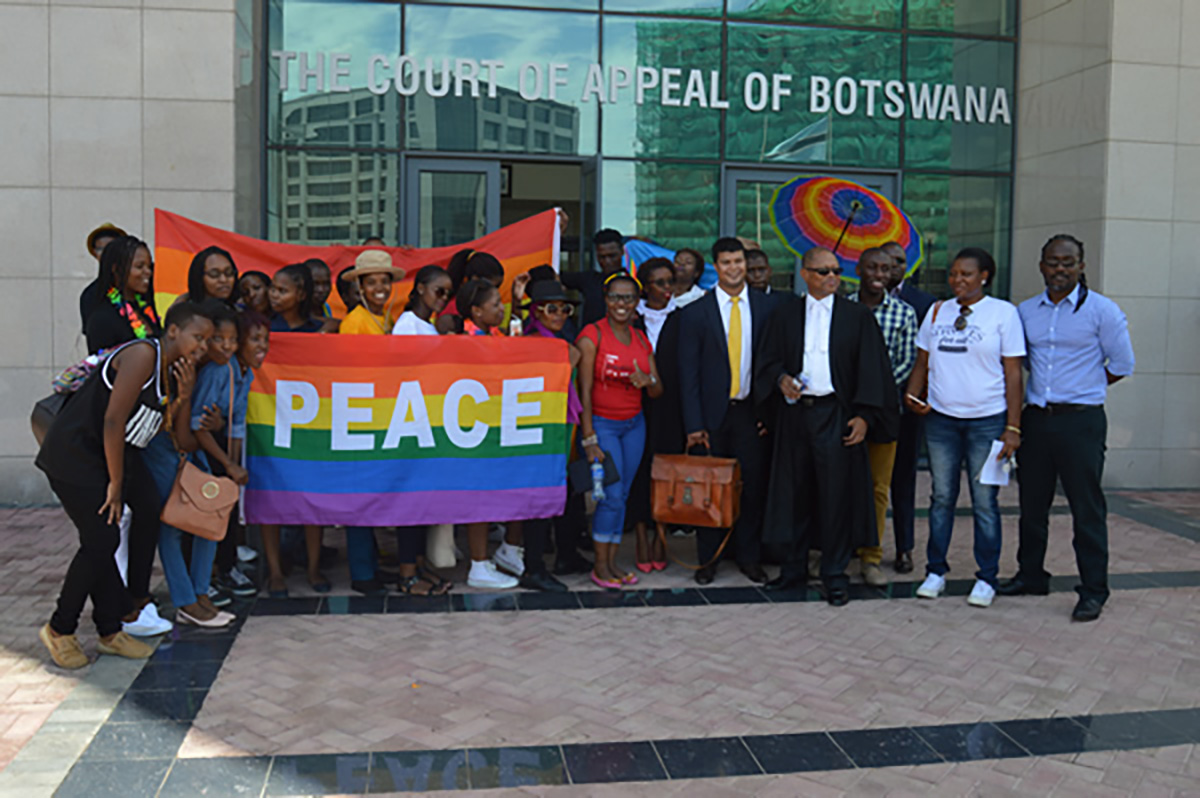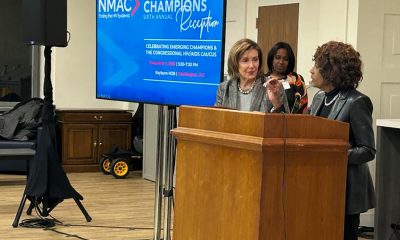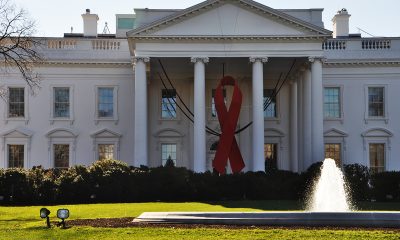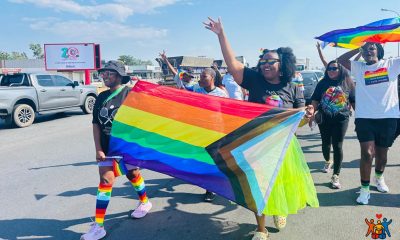Opinions
Is compulsory NGO registration a death kneel to activism?
Advocacy groups across Southern Africa fear laws could thwart their work

There is a rising trend of countries in the region enacting laws that compel all non-governmental organizations to register in order to operate and prohibit any operation by unregistered organizations. The Financial Action Task Force (FATF) Recommendation Eight requires that states, in order to remain in good standing, must increase monitoring and regulation of non-profit organizations through a risk-based system to combat money laundering and terrorist financing.
Most governments interpret this as “carte blanche” to compel all NPOs to register in order to operate, with legal measures enabling the government to monitor, and, in many cases, control these entities. Registration, in many contexts, comes with increased regulatory oversight, procedural operating requirements, and risks which often greatly increase operating costs for many associations.
In many contexts, this not a mere administrative act but the legal requirements bear the risk of an association being denied registration at the discretion of the regulating authorities, many times for spurious or arbitrary reasons. This includes denial of registration for organizations deemed “immoral.” Organizations representing marginalized and criminalized populations like sexual and gender minorities or sex workers are likely to face significant difficulties in getting registered.
For example, in Botswana, an LGBTI group was denied registration on morality grounds, and had to seek the intervention of the courts to be registered. The denial was based on the fact that same-sex acts were criminalized in Botswana. The courts, in the case of Attorney General of Botswana v. Rammoge and 19 Others, confirmed that equal enjoyment of human rights meant that everyone should be able to exercise the right to freedom of association, regardless of status, including sexual orientation. There is a similar situation in Malawi, where the refusal by the government to register an organization of LGBTIQ people on the same grounds is before the courts.
The recently amended NGO Act in Malawi requires compulsory registration for all NPOs to be able to operate, with penalties for operating without registration that can be applied against every officer of the organization. In addition, registered organizations are required to submit an audit report annually; failure to do so can result in an organization being suspended or deregistered.
The Private Voluntary Organizations (PVO) Amendment Act of Zimbabwe, recently signed into law, amends the PVO Act to require the re-registration of all organizations in Zimbabwe that were previously operating as trusts or any other form of organization. These organizations must register as PVOs if they provide services to the public or receive public funding or donations. An application for registration (even of existing organizations) can be refused if the registrar decides that the organization’s activities are not in line with their stated objectives or that they do not comply with the requirements of the Act, which includes the receipt of money from “illegal” sources. Additionally, if a PVO intends to change its name or its objectives, it must make a new application for registration, which can also be denied. The operation of an unregistered PVO attracts criminal and civil sanctions for anyone in management. In terms of the law, even organizations that do not qualify for registration as PVOs can still be compelled by the minister to register if considered to be at high risk or vulnerable to terrorist financing. The regulating authorities (the registrar, NGO board, and the minister) wield immense, almost unchecked power including the power to deregister an organization and suspend and replace the governance of an NGO with their own appointees.
Zambia has also proposed legislation to amend the NGO Act to include compulsory registration of all NGOs. The difference with the Zimbabwe PVO Amendment Act is that existing legally registered organizations are deemed registered under the proposed law. However, all organizations would be subject to a licensing requirement after five years. An organization whose activities are considered to be against the law can be denied a license. The law proposes that unlicensed organizations would not be allowed to operate in Zambia, with criminal sanctions for operating without a license. The registrar would have extensive powers to regulate an NGO, including suspension or deregistration.
Amid all this excessive regulation, activists flounder. The most effective advocates are community advocates, as the adage “nothing about us without us” implies. Freedom of association, a fundamental right, has enabled communities to organize and advocate for the issues at heart, including human rights, healthcare, economic and social inclusion. It has also enabled them to participate in public processes and increased civil engagement.
The levels of organization for communities differ, from community-based organizations to national, regional and international organizations, and their structures and needs are different. Their resource requirements are also different. Some CBOs are not even formally organized with employees or other organizational structures but can advocate for their communities, gather and sometimes raise resources. A rigid regulatory system for these, with rigorous auditing and reporting requirements, is likely to deplete the capacity for activism and not be sustainable financially. In addition, the excessive intrusion of the state into community or social groups is not in line with plural democratic or transformed societies.
Regulation may be necessary in some instances, such as the handling and accountability of public funds and safeguarding of vulnerable communities, but a truly risk-based approach to regulation that does not impose onerous burdens or restrictions on civil society is needed. Additionally, the disproportionate focus on civil society for regulation regarding money laundering or terrorist financing is largely unnecessary. Claims that NPOs are particularly vulnerable to terrorist financing are highly exaggerated and do not justify singling them out for increased monitoring. Even the FATF has recognized the unintended effect of its Recommendation 8 being used as a pretext for draconian interference and issued revised guidelines that dissuade states from imposing regulations that hinder the important and necessary activities of NPOs for society. Other countries like South Africa, whilst complying with tightening up NPO regulation, have applied a risk-based approach to the registration and regulation of NPOs.
In conclusion, current and emerging risks with illicit financial flows cannot be ignored as they affect society in general, including government and commercial entities. However, adequate laws and regulations can be enforced to combat money laundering and terrorist financing without risking the life and structure of activism by forcing rigid regulations.
Tambudzai Gonese-Manjonjo is the deputy director of the Southern Africa Litigation Center.
Opinions
Unconventional love: Or, fuck it, let’s choose each other again
On Valentine’s Day, the kind of connection worth celebrating

There’s a moment at the end of “Love Jones” — the greatest Black love movie of the 21st century — when Darius stands in the rain, stripped of bravado, stripped of pride, stripped of all the cleverness that once protected him.
“I want us to be together again,” he says. “For as long as we can be.”
Not forever. Not happily ever after. Just again. And for as long as we can. That line alone dismantles the fairy tale.
“Love Jones” earns its place in the canon not because it is flawless, but because it is honest. It gave us Black love without sanitizing it. Black intellect without pretension. Black romance without guarantees. It told the truth: that love between two whole people is often clumsy, ego-driven, tender, frustrating, intoxicating—and still worth choosing.
That same emotional truth lives at the end of “Eternal Sunshine of the Spotless Mind,” my favorite movie of all time. Joel and Clementine, having erased each other, accidentally fall back into love. When they finally listen to the tapes that reveal exactly how badly they hurt one another, Clementine does something radical: she tells the truth.
“I’m not perfect,” she says. “I’ll get bored. I’ll feel trapped. That’s what happens with me.”
She doesn’t ask Joel to deny reality. She invites him into it. Joel’s response isn’t poetic. It isn’t eloquent. It’s not even particularly brave. He shrugs.
“Ok.”
That “OK” is one of the most honest declarations of love ever written. Because it says: I hear you. I see the ending. I know the risk. And I’m choosing you anyway.
Both films are saying the same thing in different languages. Nina and Darius. Clementine and Joel. Artists and thinkers. Romantics who hurt each other not because they don’t care — but because they do. Deeply. Imperfectly. Humanly.
They argue. They retreat. They miscommunicate. They choose pride over vulnerability and distance over repair. Love doesn’t fail because they’re careless — it fails because love is not clean.
What makes “Love Jones” the greatest Black love movie of the 21st century is that it refuses to lie about this. It doesn’t sell permanence. It sells presence. It doesn’t promise destiny. It offers choice.
And at the end — just like “Eternal Sunshine” — the choice is made again, this time with eyes wide open.
When Nina asks, “How do we do this?” Darius doesn’t pretend to know.
“I don’t know.”
That’s the point.
Love isn’t a blueprint. It’s an agreement to walk forward without one.
I recently asked my partner if he believed in soul mates. He said no—without hesitation. When he asked me, I told him I believe you can have more than one soul mate, romantic or platonic. That a soul mate isn’t someone who saves you — it’s someone whose soul recognizes yours at a particular moment in time.
He paused. Then said, “OK. With those caveats, I believe.”
That felt like a Joel shrug. A grown one.
We’ve been sold a version of love that collapses under scrutiny. Fairy tales promised permanence without effort. Celebrity marriages promised aspiration without truth. And then reality — messy, public, human—stepped in. Will and Jada didn’t kill love for me. They clarified it.
No relationship is perfect. No love is untouched by disappointment. No bond survives without negotiation, humility, and repair. What matters isn’t whether love lasts forever. What matters is whether, when confronted with truth, you still say yes.
“Love Jones” ends in the rain. “Eternal Sunshine” ends in a hallway. No swelling orchestras. No guarantees. Just two people standing at the edge of uncertainty saying: Fuck it. I love you. Let’s do it again.
That’s not naïve love. That’s courageous love.
And on Valentine’s Day — of all days — that’s the kind worth celebrating.
Randal C. Smith is a Chicago-based attorney and writer focusing on labor and employment law, civil rights, and administrative governance.

The United States and the world are waiting for the Supreme Court to hand down its decisions in two cases (Little v. Hecox and West Virginia v. BPJ) that would rule on whether young trans women can play women’s sports at their schools. As trans journalist Erin Reed explained, these two cases are not just about transgender sports. These cases are litmus tests for trans rights at the nation’s highest courts and will have wide-reaching implications for the rights of trans and nonbinary people in the United States.
And these cases will impact cis women. As Orien Rummler reported for the 19th and them, anti-trans legislation and rulings threaten the rights of all women, especially cis women of color. The best example is the allegations that woman boxer Imane Khelif faced at the last Paris Olympics.
The gender policing that Khelif faced shows how sports bans that police who are considered a man or woman legitimize and mandate invasive medical testing, a form of medical abuse, against all women and girls who want to play sports. And let’s be clear — there is historical precedence for this.
The Nazi regime did use genetic screening in order to police who could have children as part of their “racial hygiene” programs, including marriage partner hereditary testing that flagged anyone with “tainted” genetic lineages. While prisoners in concentration and detention camps were subjected to horrifying medical experimentation, Nazi officials experimented with their own followers, facilitating reproduction only among people with desirable characteristics — notably those with blonde hair and blue eyes — and sterilizing those with undesirable genetics.
In fact, trans and gender non-conforming people were some of the first targeted by Nazi violence, with one of the first book burnings occurring in 1933 when Nazi youth and members of the Sturmabteilung ransacked the Institute for Sexual Science and burned one of the largest libraries of medical texts about gender affirming care. Nazi officials first exerted control over gender before extending this to race and religion.
And this was not confined to Nazi Germany. As I’ve written about before, the United States has used eugenics to justify the forced sterilization of women of color, disabled women, poor women, and incarcerated women. Forced sterilization was one part of forced or coerced medical testing that targeted Black and Indigenous women.
This medical violence, along with non-consensual experimentation including Dr. James Marion Sim’s gynecological experimentation on enslaved Black women, was rooted in systemic racism and medical abuse, and has contributed to legacies of mistrust and health disparities in medical institutions and practitioners.
When sports organizations, like the U.S. Olympic and Paralympic Committee, require women to undergo “sex verification,” they set a precedent of forced genetic testing that violates everyone’s privacy and could very well exclude many cis women from sports if they fall outside the bounds of what is defined as a “woman.”
The best example is cis women with Polycystic Ovary Syndrome. Some people with PCOS have hyperandrogenism, an excess of androgen, or experience hirsutism (i.e. the development of more traditionally masculine features like increased muscle mass and more pronounced facial hair.) Mandatory sex verification may diagnose or “out” women as intersex without their consent. Differences of Sex Development, another term used to describe intersex experiences, is more common than most people would expect.
Would women with PCOS not be considered women? What about women with more pronounced facial hair or greater muscle mass because of natural variation? It’s important to note what is considered American standards of womanhood are rooted in White supremacy — one of the reasons why women of color have been and will be targeted by anti-trans violence.
The very people making these decisions are also beginning to ask these questions. According to Erin in the Morning, Supreme Court Justice Amy Coney Barrett is even worried about the implications of these two Supreme Court decisions. As Alejandra Carabello, a Harvard Law educator, told Erin in the Morning, a decision supporting anti-trans sports bans “could result in the segregation of women in a host of other areas of public life under the rationale that biologically, men are different and they need to be segregated.”
Barrett, a conservative justice who was appointed by Trump in 2020, seems to acknowledge these risks, saying “your whole position in this case depends on there being inherent differences.”
There is not. According to science, gender is not a strict binary but a spectrum determined by biological, psychological, and social factors, including cultural norms surrounding gender.
The best indication of this is that intersex people exist. Intersex people are individuals born with sex hormones and characteristics that differ from a strict male to female binary. Some people are born with atypical genitalia, specifically external genitals that don’t look male or female or are underdeveloped. Some are born with phallia, a condition where a baby is born without a penis, some born with a “mismatch” between their internal and external organs.
In all of these cases, the idea of normal, mismatched and properly developed genitalia and bodily presentation is conditional upon a male and female binary reinforced by the medical establishment — and to be clear, this gender binary has hurt people. For decades, intersex babies have suffered medical abuse because doctors perform unnecessary surgeries to “fit” these children into a female/male binary. These medically nonessential surgeries performed on children who cannot consent are a form of medical assault.
To be clear, this is not the same as gender affirming care performed on consenting individuals who are receiving hormone therapy and surgery to align their gender presentation with their identity. As major medical and mental health organizers assert, gender-affirming care is medically necessary and lifesaving healthcare for trans and nonbinary people.
And the vast majority of children who are having gender affirming surgery are cis ones. A June 2024 study found that the vast majority of minors undergoing gender-affirming surgeries were cis children. This did not include intersex people who underwent surgery or people who received surgery for an illness or injury. About 97 percent of 150 cases where minors received gender affirming surgery in 2019 were chest reduction surgery performed on cis boys. This surgery is commonly performed on boys with gynecomastia, or develop enlarged breasts due to a hormone imbalance.
So for many, the decisions expected on these Supreme Court cases may seem confined to sports but in actuality, they have profound ramifications not only for cis women but also amid the growing escalation and legitimization of eugenics in the United States.
It’s no mistake that earlier this month, Dr. Elisa von Joeden-Forgey, president of the Lemkin Institute, stated that the U.S. is in the “early-to-mid stages of a genocidal process against trans and nonbinary and intersex people.” Dr. Gregory Santon, former president of the International Association of Genocide Scholars, flags “a hardening of categories” surrounding gender in a “totalitarian” way.
Stanton argues that this is rooted in Nazi ideology’s surrounding gender — this same regime that killed many LGBTQIA individuals in the name of a natural “binary.” As Von Joeden-Forgey said, the queer community, alongside other “minority groups, tends to be a kind of canary in the coal mine.”
Even the fact that discussions of the trans sports ban foreground its potential implications for cis women (or that this is the primary concern voiced by Barrett) showcases whose bodies take priority.
This framework reflects how members of the feminist movement have used and presently do use the movement to justify the very anti-trans exclusion that will harm them. Some call themselves trans-exclusionary radical feminists (TERFs); these women believe that codifying and protecting trans women’s rights threatens the rights of cis women and have even partnered with some conservative groups because of their commitment to enforce what it means to be a “biological woman.”
As history can show us, it’s exactly the opposite — first, feminism is rooted in equity for all people, all women, not just cis women. Because protecting trans women from medical violence like sex verification testing and challenging people and organizations that police who a woman is, protects all women.
Emma Cieslik is a museum worker and public historian.

The racist felon in the White House has sunk to what many people consider a new low, with his posting the disgusting depiction of the Obamas on his social media site. The depths to which he will sink would be considered unfathomable to many. But there is nothing we should think him incapable of. With this latest post, and refusal to apologize, I have to question the principles and decency of anyone, who still in any way, is willing to support him.
I once thought to give people taken in by his lies and carnival barker routine, the benefit of the doubt. I had the benefit of always knowing Trump was a liar and slimeball, having met him years ago in New York. I understood he learned well at the feet of his mentor, Roy Cohn, who was one of the more disgusting figures in New York politics. But not everyone knew that history. But now, after his behavior and actions, during the first year of his second term, I will not give the benefit of the doubt to anyone. If you still stand with the felon, you are a person with no principles, or decency, yourself. If you still support him you are standing with a man who first glorified the murder of a VA nurse, Alex Pretti, in Minneapolis, calling him a domestic terrorist. A man who said the ICE agents who did it were just doing their job. He did the same when they murdered Renee Good in cold blood, calling her a ‘domestic terrorist.’ He supported his agents acting like the Gestapo when taking a five-year-old boy into custody on his front stoop.
The felon went to Davos and in a stunning attack on our allies, claimed the men and women in their military never joined us on the front lines in Afghanistan, insulting all those who fought, and died, with our troops. He was either too dumb to know, or chose to disregard, that Article 5, a critical clause in the NATO pact, which means an armed attack on one member of the alliance will be treated as an attack on all members, was only invoked once in NATO’s history, and that was after the Islamist terrorists attacked the U.S. on Sept. 11, 2001.
He is destroying our country, and all our credibility around the world. He bows down to Putin and other despots. He clearly wants to be King of our country, and now an Emperor in the eyes of the world, as he threatens Greenland, and threatens to attack numerous other countries.
The problem those sycophants have, is I believe the people of the United States will finally understand he is destroying what is best in their lives. They will rise up and depose him; they will do it with their votes. Many of those who believed his lies and promises, are now seeing him as the “Emperor with no clothes.” He lied to them, and fooled enough of them, to win the election. They are waking up to the fact he is more senile than they thought Biden was, and clearly much less intelligent. They are seeing him for the grifter he is and finding out he cares not a bit for them, or their welfare. He clearly couldn’t care less that their grocery prices are going up, their rents are going up, their heating costs are going up, and for some, their healthcare costs are tripling. None of that bothers him in the least. He cares more about getting gift planes from Qatar, selling crypto coins, seeing Melania make money on a weird so-called documentary, and giving tax breaks to his rich friends and corporations.
The American people have fought a revolution before. We fought a king and won. This revolution may look different from that, and from the French Revolution. We may man/woman the barricades but will do so without guns. We will win with our votes.
The wealthy like Jeff Bezos, and others who see themselves as American nobility, corporate and media giants, who think the felon will make them even richer if they kneel before him, will in the long run be very disappointed. He has some power for a few more years, but even that will be curtailed when Democrats take back Congress in January 2027.
Peter Rosenstein is a longtime LGBTQ rights and Democratic Party activist.




















